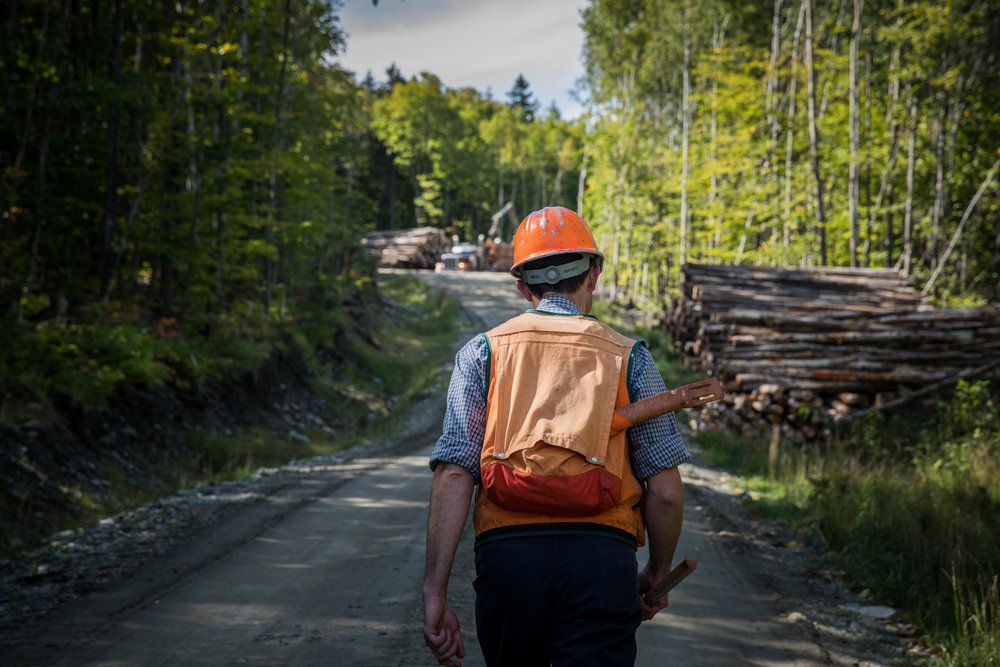
Enabling Maine’s North Woods to Meet its Ecological and Financial Potential
Exemplary Forestry Management seeks to align financial incentives with the long-term ecological needs of timberland, wildlife, and local stakeholders
Maine’s North Woods is the core of one of the largest remaining mixed temperate forests in the world.
Maine is home to a 5-million-acre region of forest with some of the most globally significant bird habitat in the world, the last stronghold for wild brook trout, and a critical ecological zone for climate and biodiversity.
Exemplary Forestry Management is building a blended capital model to mitigate climate change and secure the future of the Maine Woods.
Exemplary Forestry is at the core of our model. Exemplary Forestry extends harvest rotations and seeks to put value onto the land.

This video from our partner, Maine Mountain Collaborative, highlights what makes this region so special.
Our Approach
-

Maine Specific
Focus on specific, nationally-significant, ecoregion with a history of conservation that is facing significant future threats
-

Smaller Parcels
Targeting 3,000 – 20,000 acre parcels that are too small for large TIMO investment and are too challenging for land trusts and community forests
-

Modern Practices
Guided by science-based forest management guidelines (read the nuts and bolts of Exemplary Forestry standards and metrics)
-

Local Management
Developed by the Maine Mountain Collaborative, a coalition of local, regional, and national conservation and forestry organizations
Our goal is greater environmental and financial value over time through Exemplary Forestry practices. EFM seeks to leverage impact investment to create a pathway for financial and environmental returns to work in tandem. Our straightforward approach includes:
-

Purchase timberland and protect property with conservation easements
-

Employ Exemplary Forestry techniques on the timberland
-

Increase timber stocking levels and growth rates (with time)
-

Improve carbon stocks, wildlife, and recreation opportunities
-

Continuously capture returns from land conservation and carbon
-

Secure returns from timber stock improvements and land (at disposition)
We also are big fans of the Appalachian Mountain Club’s approach to forest management and climate change.


